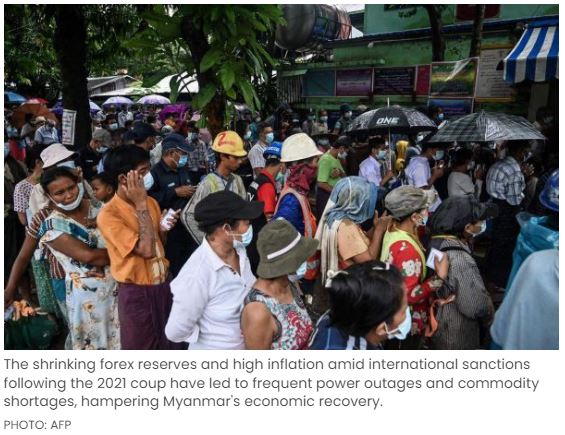Inflation, conflicts weaken Myanmar’s economy, World Bank says
MYANMAR’S economy remains weak due to high inflation and worsening external pressures as conflicts between pro-democracy groups and the military government crimp domestic supply and demand, according to the World Bank.
While the economy is likely to expand 3 per cent this year after contracting a steep 18 per cent last year, the World Bank won’t issue an outlook for next year as some parts of the economy such as manufacturing and construction are badly-hit, said Aaditya Mattoo, chief economist for East Asia and Pacific.
Myanmar is battling a foreign currency shortage after the kyat plunged by more than a third last year, prompting the central bank to move to a fixed rate of exchange. The shrinking forex reserves and high inflation amid international sanctions following the 2021 coup have led to frequent power outages and commodity shortages, hampering an economic recovery.
Amid the continuing conflicts, “there are logistics disruptions which are leading to food shortages and increasing retail prices, further straining household income,” Mattoo said. “We are concerned about it despite slight revival in manufacturing and construction. Overall, we do think there are difficulties that Myanmar’s economy still faces.”
Price pressures will remain high due to the impact of kyat depreciation, logistics constraints, and still-high global oil prices, the World Bank said. Policy uncertainties and the reversal of earlier reforms have inhibited trade and investment in the South-east Asian country, it said.
While interventions and administrative controls in the foreign exchange market may initially reduce external liquidity pressures, they will have broader negative impact, the World Bank said. The foreign exchange crunch may prevent imports of critical commodities and lead to supply shortfalls. BLOOMBERG


 Thailand
Thailand




